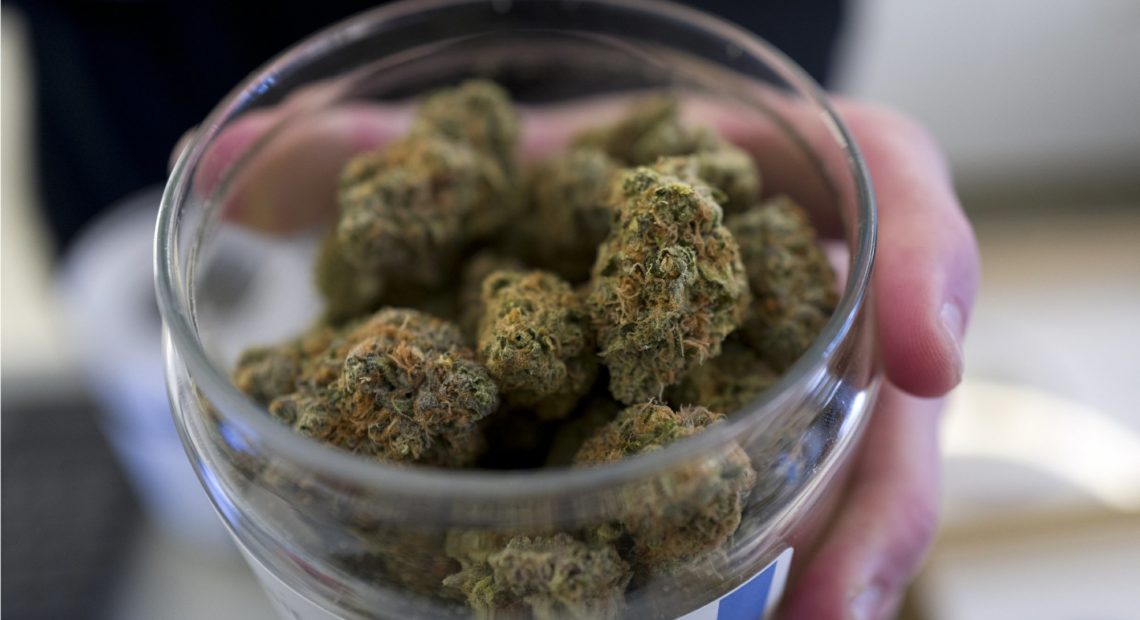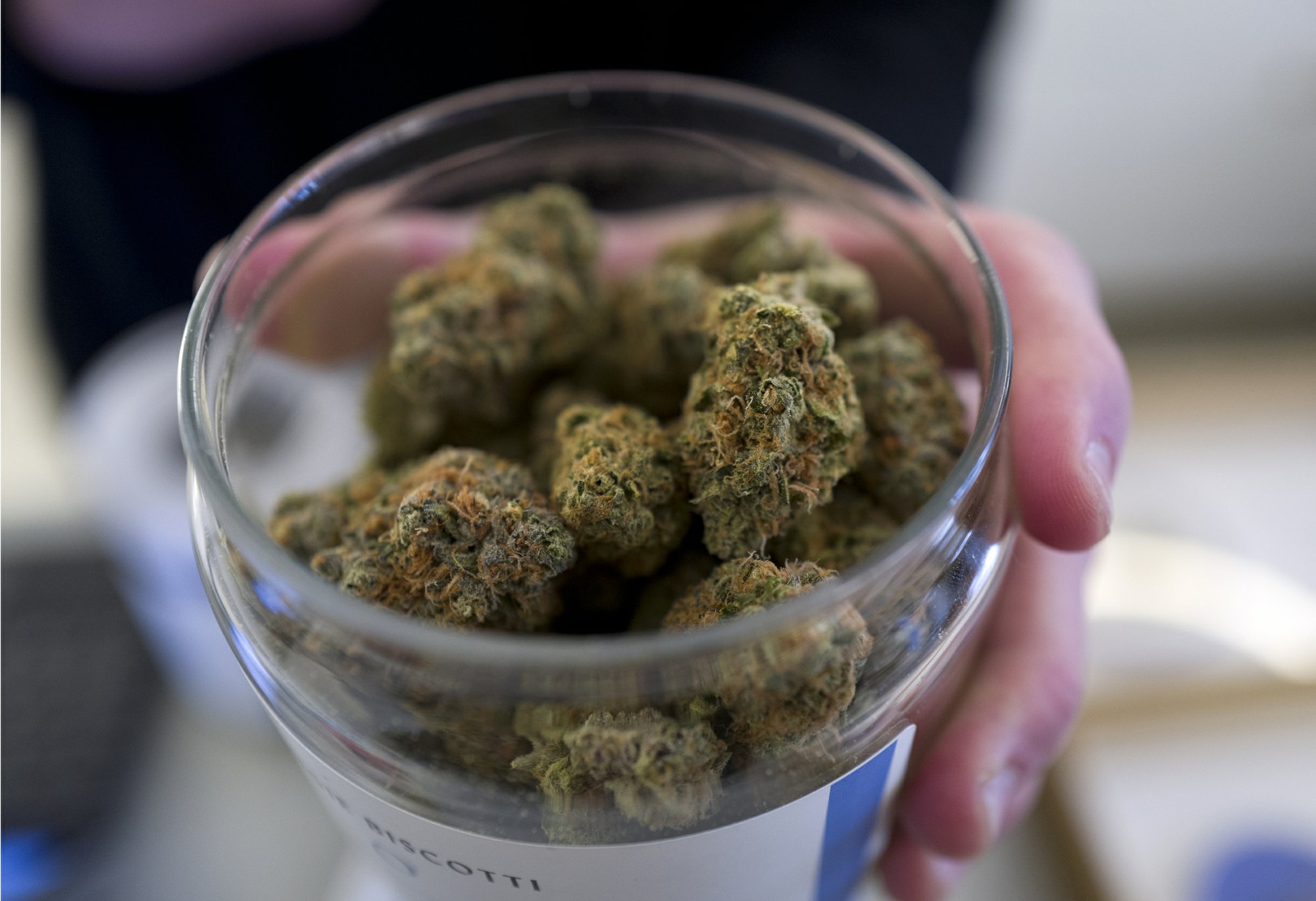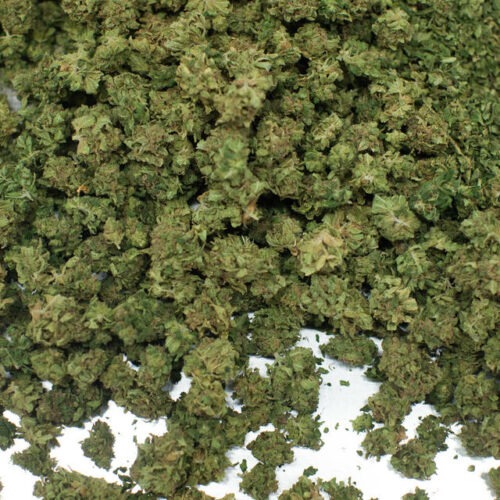
Oregon Has A Big Oversupply Of Legal Marijuana. Now It’s Curbing Production

Read On
BY ANDREW SELSKY / AP
Oregon is awash in pot, glutted with so much legal weed that if growing were to stop today, it could take more than six years by one estimate to smoke or eat it all.
Now, the state is looking to curb production.
Five years after voters legalized recreational marijuana, lawmakers are moving to give the Oregon Liquor Control Commission more leeway to deny new pot-growing licenses based on supply and demand.
The bill, which passed the Senate and is now before the House, is aimed not just at reducing the huge surplus but at preventing diversion of unsold legal marijuana into the black market and forestalling a crackdown by federal prosecutors.
“The harsh reality is we have too much product on the market,” said Democratic Gov. Kate Brown, who intends to sign the bill if it wins final passage as expected.
Supply is running twice as high as demand, meaning that the surplus from last year’s harvest alone could amount to roughly 2.3 million pounds of marijuana, by the liquor commission’s figures. That’s the equivalent of over 1 billion joints.
Oregon has one of the highest such imbalances among the 10 states that have legalized recreational marijuana since 2012, in part because it had a big head start in the weed business.
With its moist climate and rich soil, Oregon has a long history of pot growing. When it became legal, many outlaw growers went legitimate, and others jumped into the business, too.
They are now all cultivating weed in a multitude of fields, greenhouses and converted factories, with 1,123 active producer licenses issued by the OLLC over the past three years.
The legislation could be a lifeline to some cannabis businesses that are being squeezed by market forces.
Retail prices in Oregon for legal pot have plummeted from more than $10 per gram in October 2016 to less than $5 last December. At the same time, smaller marijuana businesses are feeling competition from bigger, richer players, some from out of state.
Officials worry that some license holders will become so desperate they will divert their product into the black market rather than see it go unsold.
“We’re a very young industry,” said Margo Lucas, a marijuana grower and vendor in the Willamette Valley who is hoping the measure will give her business breathing room.
She noted that growers can’t seek federal bankruptcy protection — pot is still illegal under federal law, and banks avoid the industry — and that many owners have taken out personal loans to finance their businesses.
“So when we go out of business, we’re going to go down hard,” Lucas said. “Many of us will lose our homes. … You’re going to have a lot of entrepreneurs in this state that are pretty unhappy with the way that this ends if we don’t get some support with this bill.”
Opponents say the proposed law will drive growers who are denied licenses into the illegal market, if they’re not there already.
“This current track seems like a giant step backwards toward prohibition, which has always been a disaster,” Blake Runckel, of Portland, told lawmakers in written testimony.
As of January, Oregon’s recreational pot market had an estimated 6½ years’ worth of supply, according to an OLCC study .
To prevent excess pot that is still in leaf form from spoiling, processors are converting some into concentrates and edible products, which have longer shelf life, OLLC spokesman Mark Pettinger said.
U.S. Justice Department officials have said they won’t interfere in states’ legal marijuana businesses as long as the pot isn’t smuggled into other states and other standards are met. Oregon officials want to let federal authorities know they’re doing everything they can to accomplish that.
The bill to curtail production could “keep the feds off our back,” Rob Bovett, legal counsel for the Association of Oregon Counties, told lawmakers.
Oregon puts no cap on the number of licenses that can be issued. Last June, the OLCC stopped accepting applications so it could process a monthslong backlog. But under current law, it has no specific authority to say no to otherwise qualified applicants, Pettinger said.
The longer-term hope is that the federal government will allow interstate commerce of marijuana, which would provide a major outlet for Oregon’s renowned cannabis.
“We will kind of be like what bourbon is to Kentucky,” said state Sen. Floyd Prozanski.
Copyright 2019 Associated Press
Related Stories:

Pasco Ponders Pot
FlikrCreativeCommons James St. John Listen {RunTime 1:29} Read Pasco City Council wants to hear from the public regarding allowing Pot sales downtown. In June, Entrepreneur David Morgan asked the council

Washington’s ‘Joints For Jabs’ COVID Vaccine Program Off To A Rocky Start With Pot Retailers
It was designed as an innovative way to promote COVID-19 vaccinations, but Washington’s new “joints for jabs” program is off to a rough start. Officials announced Monday that the state’s nearly 500 licensed marijuana retailers could begin hosting vaccine clinics and offering a single, free pre-rolled marijuana cigarette to any 21-plus adult who received a shot there.

Washington Marijuana Stores Can Now Offer Free Joint For COVID-19 Vaccine
The state Liquor and Cannabis Board is calling the effort the “Joints for Jabs” program. The board says licensed adult-use marijuana retail shops can give away a single pre-rolled joint to anyone over 21 who gets a shot at an on-site vaccine clinic held by July 12.















